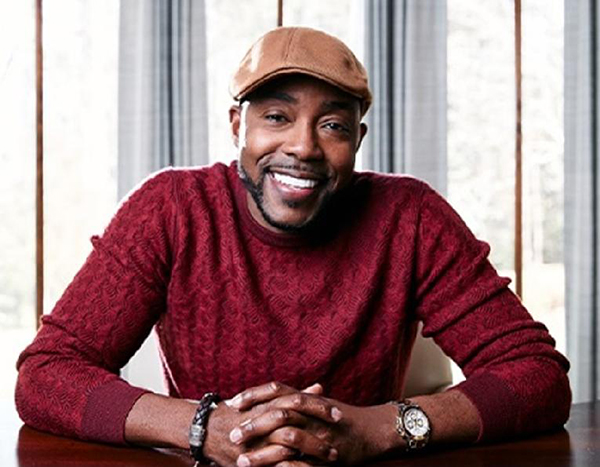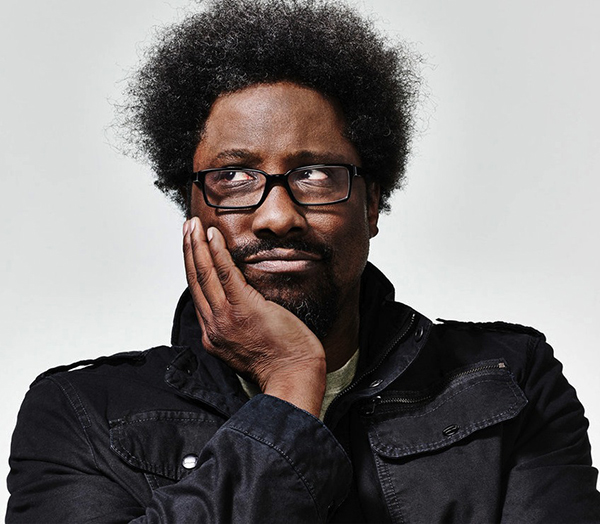Thurgood Marshall, the first Black to serve on the U.S. Supreme Court is the subject of a documentary that debuts on PBS Sept. 9. The documentary is executive produced by Stanley Nelson and directed and produced by Alexis Aggrey.
Courtesy photo
By Darlene Donloe
Contributing Writer
A new documentary that sheds light on the life and legacy of Thurgood Marshall, the trailblazing lawyer and Supreme Court justice who played a pivotal role in shaping America’s social landscape, will premiere on PBS Sept. 9.
“Becoming Thurgood: America’s Social Architect” is a film that tells the story of a man who has become a true American icon.
The one-hour documentary, which comes at a time when the nation continues to grapple with issues of social justice and equality, is executive produced by Stanley Nelson and directed and produced by Alexis Aggrey.
“Thurgood Marshall is one of a kind,” said Nelson, a documentarian who has profiled Miles Davis, Harriet Tubman and Frederick Douglass, as well as other subjects. “He’s an important figure in American history and especially in African American history. Producing this documentary was a no-brainer.”
“The idea came from Charles Mitchell with Maryland Public Television, who received a grant to tell the stories of influential African Americans in Maryland,” said Aggrey, who directed “Afrofuturism: The Origin Story,” “Trials of the Wild,” and “A Capitol Fourth”.
“When the film was brought to my attention, I realized I didn’t know what his voice sounded like. It was important to humanize him and introduce him to a new generation because his work was important.”
The documentary, which took two and a half years to produce, is a meticulously researched portrait of Marshall. The film reveals how Marshall’s upbringing in a middle-class AfricanAmerican family in Baltimore, his experiences with segregation and his time at Howard University laid the groundwork for his future advocacy.
Through a blend of archival footage, interviews with historians, Marshall’s colleagues and never-before-seen materials, the documentary offers an intimate portrait of the man behind the landmark Supreme Court cases that reshaped the country’s understanding of justice and equality, as well as an insightful look at the experiences that shaped Marshall’s career.
Through interviews with those who knew Marshall personally, “Becoming Thurgood” provides an understanding of Marshall’s impact on American society.
“The documentary is filled with a combination of the family and advisers of the film, former clerks and people who wrote bios,” Aggrey said. “There is an oral history we found at Columbia University where there are 16 hours of him speaking.”
From his early days as a young lawyer at the NAACP, where he argued landmark cases like Brown v. Board of Education, to his historic confirmation as the first African-American Supreme Court justice, Marshall’s story is a testament to his commitment to justice and his optimism in the face of adversity.
The documentary also delves into Marshall’s work on Shelley v. Kraemer and Smith v. Allwright, showcasing his dedication to challenging the status quo. Through those cases, Marshall not only helped dismantle the legal framework of segregation, but also paved the way for future generations of civil rights activists.
“I was really moved by how dangerous his work was,” Aggrey said. “We all understand the danger of civil rights work. Understanding how close to death he was and how often was shocking to me. People tell you about how gregarious he was, but to think a few hours earlier, he may have been caught by the Klan or encountered a Molotov cocktail. He was great at balancing levity and civil rights work.”
“Becoming Thurgood” also explores his pivotal role in shaping the civil rights movement, highlighting his ability to forge coalitions that united diverse groups in the pursuit of equality.
“I was fascinated with how he went about dismantling segregation,” Nelson said. “It was well thought out — block by block. He had a long-term strategy. It was a multi-year task.”
“We’re finally at a time when we can tell a more complex story,” Aggrey said. “We wanted to make sure we told the story of the lawyer’s lawyer, which he was proud to be. It’s now a beautiful tapestry of laws and cases he won, and he did it one case at a time.”
The film reveals how his legacy continues to inspire new generations of lawyers, activists, and leaders.
“Becoming Thurgood” also explores the ongoing struggle for justice and equality in America.
“We all have to take a page from Marshall’s book,” Aggrey said. “He felt that everyone had a role in the movement. He was about changing the law. He wasn’t about changing the hearts and minds of one generation. He wanted laws equally applied.”
“It’s important that we understand that the Supreme Court hasn’t always been as biased as it is now,” Nelson said. “It can and should be a place where he could argue segregation again and win. That’s what the Supreme Court was meant to be. It’s supposed to be balanced.”
With its premiere on PBS, “Becoming Thurgood: America’s Social Architect” aims to reach a broad audience and spark conversations about the past, present and future of American society.
Nelson and Aggrey’s film blends history, biography and social commentary. They both believe that Marshall’s story remains relevant today.
“It’s still important today,” Aggrey said. “We start by talking about the 13th, 14th, 15th, and 16th Amendments. The ability to vote. Due process. These are things every American should be aware of.
“Now, when we see our civil liberties being challenged, it’s crucial. It’s important to inform people. Important for folks to ask questions. A lot of where we are right now is largely due to ignorance and not knowing our rights.”
“The story of Brown v. Board of Education is one of the important stories in our history,” Nelson said. “They presented the case so strongly that legal segregation was brought down. We can win. People need to know. It’s about fighting for your rights.”
Aggrey said she walked away very “impressed by Marshall.”
“Everyone we talked to talked about how funny he was,” she said. “I think about how important and dangerous his work was. At the same time, he was a grandpa, and he was funny.
“His legal clerks talk about going to his office to sit at his feet and listen to his stories. Being the griot of the family is a significant responsibility. What an incredible experience it would have been to have known him.”
Both Nelson and Aggrey encourage everyone to tune in.
“For me, this is an opportunity to get a unique look at his life,” Aggrey said. “This is one of the first projects the Marshall family has endorsed. We worked with them directly. We have personal videos at the end of the documentary. His family was able to tell an intimate portrait of who he was.
“This is an opportunity to get a glimpse of Marshall that you wouldn’t have gotten if he were alive.”
“I look at Marshall as a hero,” Nelson said. “There are not a lot of people we can look at and say that.”
Darlene Donloe is a freelance reporter for Wave Newspapers who covers South Los Angeles. She can be reached at ddonloe@gmail.com.




